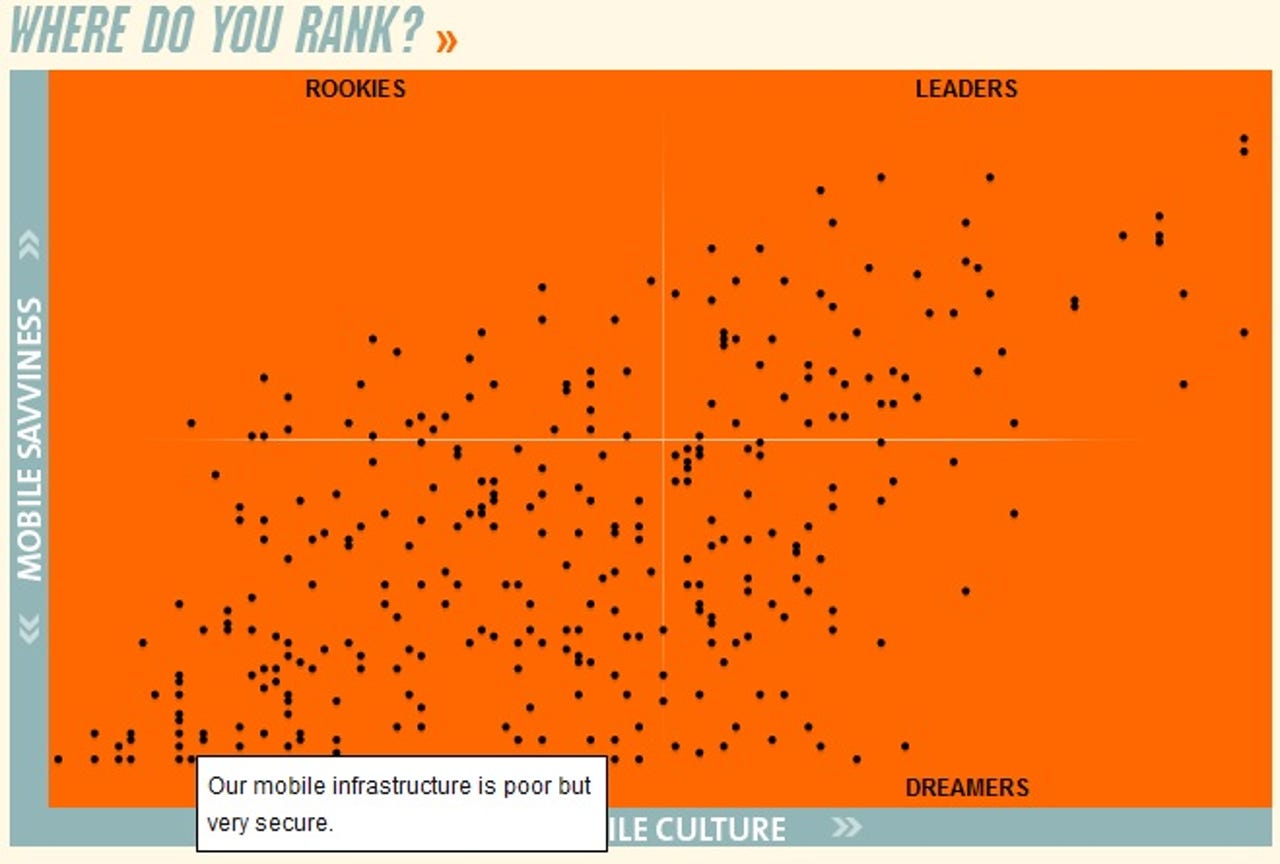In Enterprise Mobility, Dreamers Outnumber Rookies (but Laggards Dwarf Them All)
"Illusory superiority" is what psychologists call the tendency of most people to overestimate their positive traits and underestimate their negative ones.
Also called the "Above Average Effect," it's generally considered by psychologists to be a healthy thing for people to believe in.*
The great thing about surveys is that they demonstrate in brutally honest, mathematical fashion that no, we are not all above average.
Take the Mobility Matrix, for example. This is a short survey that we created at Sybase that asks people how their companies use smartphones, tablets and mobile apps at work.
Respondents are scored on two dimensions - their company's Mobile Savviness and their Mobile Culture - and then placed in one of four Quadrants: Laggard, Dreamer, Rookie or Leader.
Of the nearly 4,000 people that have visited www.MobilityManifesto.com since it was launched 3 weeks ago, more than 300 have taken the survey to see Where They Rank on Mobility.
By removing the factor of Illusory Superiority, the results are not pretty. 54% of respondents work at companies that are Laggards on Mobility today. That means they may either lack many devices inside their organization or don't take advantage of the ones that are being carried by their workers.
Another 22% are Dreamers, meaning that they might have started planning their long-term mobile strategy, but still haven't taken forward steps such as secure their devices or roll out apps beyond simple productivity ones.
Another 8% of companies, according to the Matrix, are Rookies, meaning they might have taken shallow steps such as enable a Bring Your Own Device strategy, but haven't done much strategic, long-range planning.
Only 15% are Leaders, meaning that they both talk the talk and walk the walk around mobility. Expect those companies to start leapfrogging their competitors as they reap the ROI from their mobile investments.
You can read our complete definitions of each quadrant can be viewed at www.MobilityManifesto.com.
What's even more interesting are the comments from respondents after they found out just where their companies ranked on the Mobility Matrix:
"We're stuck in the 80's."
"My company is completely out of the loop. Senior managers received BlackBerries; there's no access via other cellphones."
"Only the higher management uses mobile devices, and it will always be this way."
"My company has no clue."
"I don't think we are mobile-ready. The company is cutting costs right now, downsizing."
"Still in the Dark Ages."
"Shocked that we're so far behind in 2011. Hopefully next year we get more secure apps to use."
